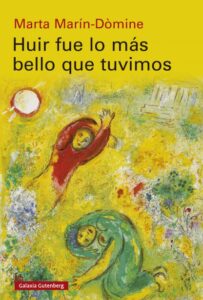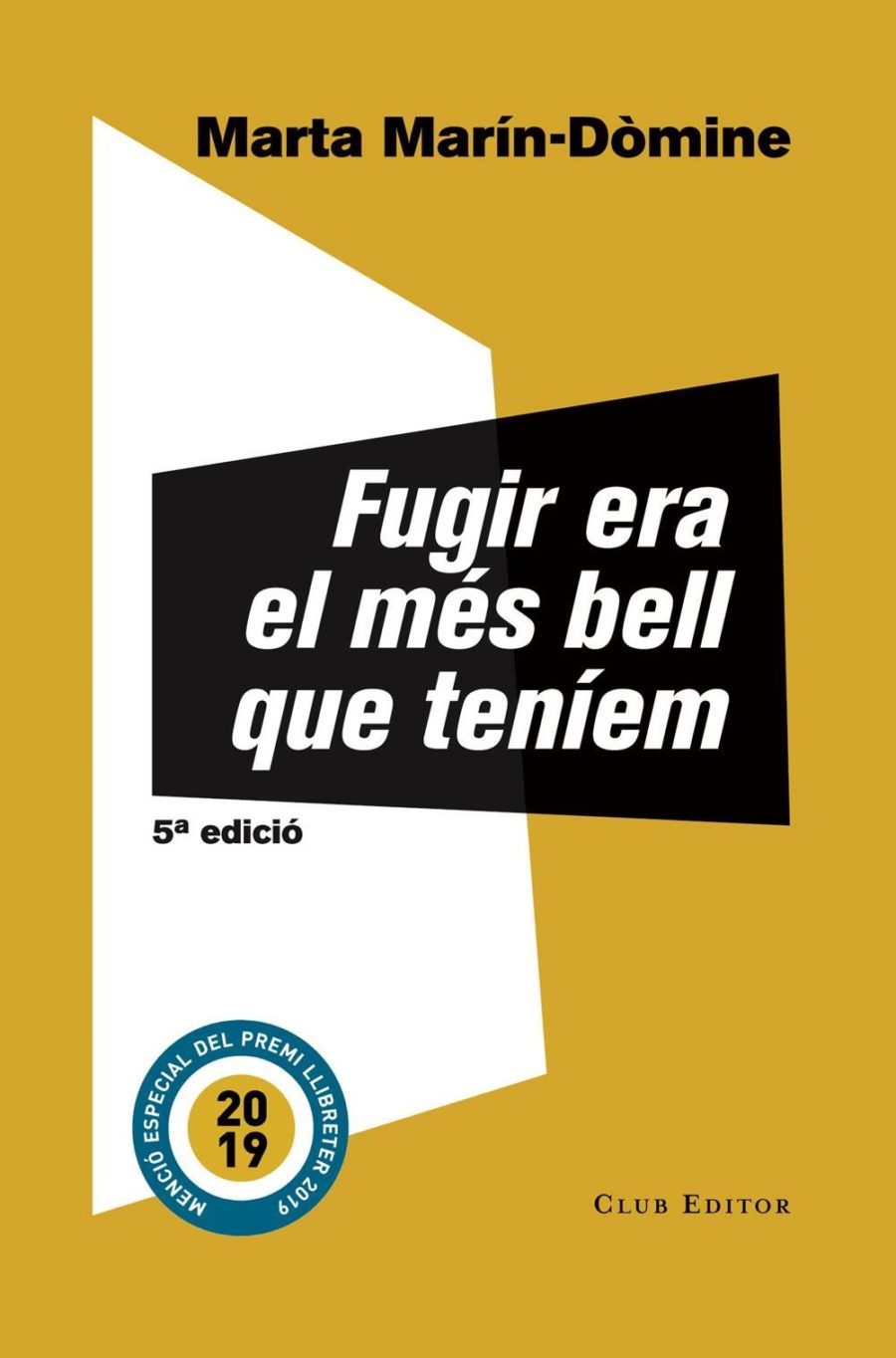Marín-Dòmine has written, in the wake of her father's death — the child-soldier Joaquim Marín Caballol — an extraordinary text about the sense of dépaysement inherited from one generation to the next. A condition embodied too by those disregarded public squares, where there is “nothing familiar on which to rest the gaze.”´-— Eva Vázquez, El Punt Avui
A different kind of book — moving in many ways, but above all, for me, because of the effort to stir the past, not with the cold detachment of someone tallying history’s defeats, but with the vulnerability of one who explores their own being and mind, the unseen foundations of what shapes us. Like someone who dares to descend into the catacombs of the self to discover what materials make up the columns that hold them up — materials left behind by other people’s experiences, by the wreckage or triumphs of lives we may not even be aware of. — Marina Subirats, Diari Ara
That identity, fractured by pain and by the disappearance of the world left behind, Marta Marín-Dòmine conveys with profound, considered emotional force — in one of the most brilliant introspective works ever written in Catalan. Our Sebald. — Jordi Amat, La Vanguardia
Even though people have taken it to be a book about historical memory and exile, to me, it’s a book about the present of that memory. — Anna Ballbona, El Temps
Exile and flight marked the 20th century — and they remain at the heart of our present. Millions have been, and still are, uprooted from the lands where they were born, setting off in search of something that might resemble home. But what if wandering becomes a calling? What if movement itself is home?
In Fleeing Was the Most Beautiful Thing We Had, Marín-Dòmine follows a daughter who is always packing her bags, always leaving — driven by a quiet instinct that refuses the comforts of a settled life. Is she fleeing? And if so, from what?
That question becomes her Ariadne’s thread, leading her through the labyrinth of memory and inheritance. At the center: a beloved father, once a child soldier in the Spanish Civil War, who crossed borders in defeat and found himself in a city that would never truly be his — the very city where his daughter was born.
This is a wise, intimate, and quietly devastating book — a tribute to the father, to the lives lived in transit, and to the fragile traces they leave behind. From Barcelona to Toronto, Marín-Dòmine follows the paths of exile and errancy with the sensitivity of a hunter, until she reaches a disconcerting, luminous truth: what we call home is not shaped by land or nation, but by those who remember us.
Contrary to exile, wandering is a perpetual motion. The one who goes into exile often seeks a home; in contrast, the one who persists in wandering inhabits open spaces — tearing down obstacles just as an excavator demolishes buildings. One can cease to be an exile one day; but a wanderer remains one forever.

Cubierta edición en castellano
